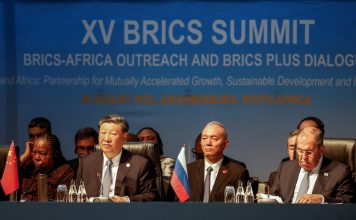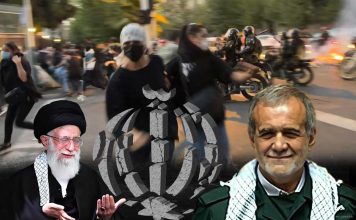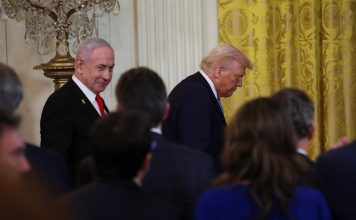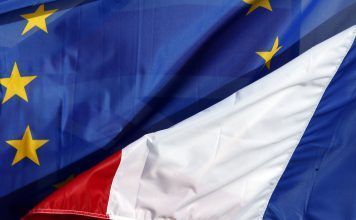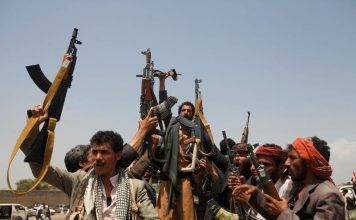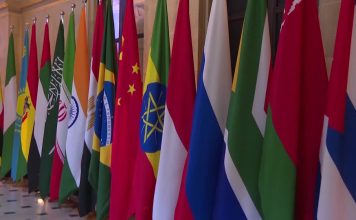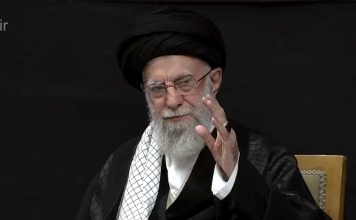By Lawdan Bazargan
[The following piece was submitted to Kayhan Life by Lawdan Bazargan: a former political prisoner, human rights advocate, and relative of victims of the 1988 massacre of political prisoners in Iran. The views expressed are her own.]
As I reflect on the harrowing experiences that my family and thousands of others endured at the hands of the Islamic Republic of Iran (IRI), I am compelled to speak out against the presence of individuals such as Seyyed Hossein Mousavian within esteemed institutions like Princeton University. Mousavian is currently a Middle East security and nuclear policy specialist at Princeton University’s Program on Science and Global Security.
My encounters with the brutality of the Iranian regime, including the arrest and tragic fate of my cousin and brother, underscore the urgency of holding accountable those who have enabled and perpetuated such atrocities.
In 1981, the IRI arrested and executed my 17-year-old cousin, Fariborz Daneshmand, after just 14 days of detention, denying us the opportunity even to visit him and say goodbye. The anguish of not knowing his whereabouts or fate haunts us to this day. Fariborz’s name was listed in major newspapers under the headline “73 armed terrorists were executed in Tehran today.” The chilling reality of 73 young men and women losing their lives in a single day, and in Tehran alone, is unimaginable. Rastyad’s research further sheds light on the extent of the regime’s brutality, documenting over 3500 political executions between June 1981 and March 1982, with at least 104 victims being children.
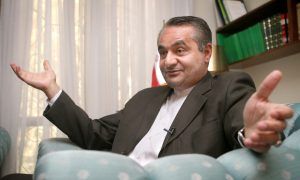
Adding to the distress, the authorities billed my uncle for the cost of the bullet used to end Fariborz’s life before reluctantly revealing the location of his grave. Fariborz was laid to rest without our being permitted to conduct a proper burial ceremony, depriving us of our chance to bid him farewell with dignity. In addition, Fariborz, who was merely 14 at the time of the 1979 revolution, had been injured by mortar shrapnel. Tragically, the shrapnel remained lodged in his spine, rendering surgical intervention impossible. The regime ruthlessly killed him, even though my cousin had unwittingly helped to bring the regime to power in the hope that it would usher in freedom and democracy. Instead, the piece of shrapnel served as a grim reminder of how, until his last breath, he was in the regime’s lethal grasp.
Similarly, in 1982, my brother Bijan Bazargan, a college student, was abducted from the streets by agents of the regime. For four agonizing months, we remained unaware of his fate until we discovered that he had been arrested. He endured two years of detention without charge, during which he was subjected to torture, whippings, and beatings.
After this unlawful detention, he was sentenced to 10 years in prison for his support of a leftist group. His so-called trial was a mockery of justice, lasting mere minutes and conducted in the absence of legal representation or the right for him to defend himself. Tragically, he was among the thousands of political prisoners executed in the summer of 1988, victims of a ruthless regime that defied the most basic principles of due process and human rights. To this day, we are still unaware of the location of his burial. The authorities callously informed my father that he was an apostate, and apostates did not deserve a grave.
In 1985, at the age of 16, I experienced the regime’s brutality firsthand when I was arrested for distributing flyers opposing the regime’s policies. I endured three and a half months of solitary confinement in the notorious Evin prison, and was subjected to inhumane conditions and psychological torment. Like many others, I faced a sham trial conducted behind closed doors, during which I was blindfolded and without legal representation or parental guidance. The proceedings were a farce, and my fate was decided in a matter of minutes by an Islamic cleric devoid of any education in law.
While my family and countless others endured the horrors of arrests, torture, and execution under the oppressive regime of the IRI, Seyyed Hossein Mousavian was steadily ascending the ranks of power within the regime. He held influential positions such as the head of the Jihad of Construction in Kashan, a branch of the Islamic Revolutionary Guard Corps (IRGC); played a crucial role in founding the Islamic Propagation Organization; and served as the head of the Center for the Revival of Islamic Thoughts.
Mousavian was the editor-in-chief of the English-language international newspaper, Tehran Times. He was instrumental in establishing the Resalat newspaper, a conservative mouthpiece for the regime. These positions of authority illustrate Mousavian’s active involvement in promoting and perpetuating the regime’s agenda, even before he assumed his role as Iran’s ambassador to Germany.
Mousavian’s association with the Iranian regime, particularly during his tenure as Iran’s ambassador to Germany, raises serious concerns about his suitability for a prestigious position at Princeton University. Mousavian, as an emissary of the Iranian government, actively defended and perpetuated the regime’s violations of human rights and international law. His complicity in defending the fatwa against Salman Rushdie, an extrajudicial order for the assassination of a writer, is particularly egregious.
Mousavian’s possible role in the Mykonos massacre, a brutal act of state-sponsored terrorism orchestrated by the Iranian regime, makes him all the more unsuitable for a position at Princeton University. The Mykonos massacre, in which several prominent Iranian Kurdish opposition figures were ruthlessly gunned down in a Berlin restaurant, exposed Iran’s willingness to target political dissidents on foreign soil. Mousavian’s efforts to obfuscate the truth and undermine the credibility of witnesses such as Abolghasem Mesbahi, known as witness C, who bravely testified on the regime’s activities, demonstrate his complicity in perpetuating a culture of impunity and injustice.
VIDEO: Islamic Republic Officials Are Accused of Crimes Against Humanity
In light of these accusations, it is incumbent upon Princeton University to reassess its association with individuals like Seyyed Hossein Mousavian. As an institution committed to principles of truth, justice, and academic integrity, Princeton must uphold its values by disavowing those who have enabled and perpetuated gross violations of human rights and international law. The presence of Mousavian as a member of Princeton’s community tarnishes the university’s reputation and undermines its commitment to fostering a safe and inclusive academic environment for all.
As a survivor of the regime’s brutality and an advocate for justice, I urge Princeton to take a stand against impunity and hold individuals like Mousavian accountable for their role in perpetuating human rights abuses. The victims of Iran’s atrocities deserve nothing less than unwavering solidarity and support from institutions such as Princeton University.

